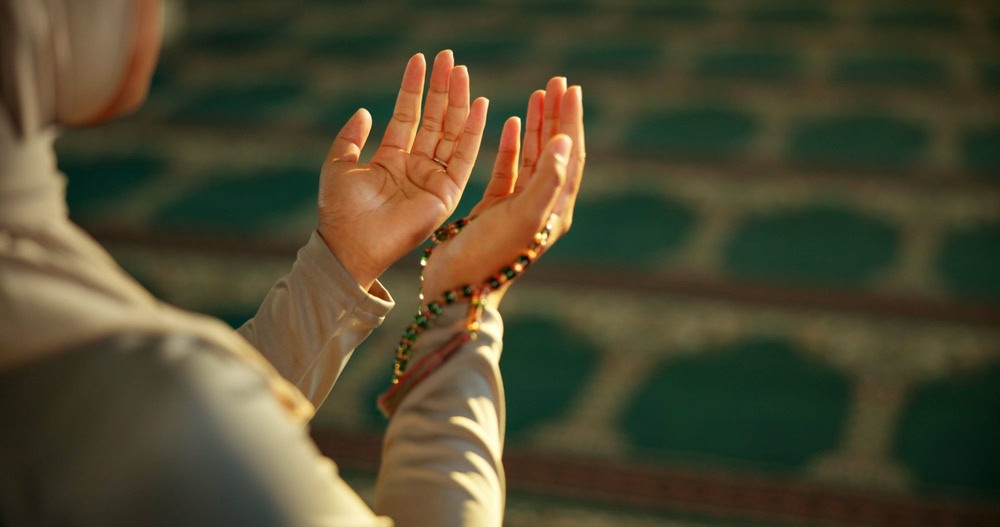How Can I Overcome the Desire for More When Blessed with Abundance?
Answered by Shaykh Anas al-Musa
Question
I possess many blessings and assets, but sometimes I forget that and feel the desire for more. How can I overcome this feeling?
Answer
In the name of Allah, the Most Gracious, the Most Merciful.
All praise is due to Allah, Lord of all worlds. Peace and blessings be upon the Messenger sent as a mercy to the worlds, our Master and Prophet, Muhammad, and his Family and Companions.
The Nature of Human Desire for More
It is natural for a person to desire more of Allah’s blessings; this is an inherent characteristic that Allah has placed in humans. The Prophet (Allah bless him and give him peace) said,
“If the son of Adam had two valleys of wealth, he would seek a third, and nothing will fill the belly of the son of Adam except dust. And Allah accepts the repentance of whoever repents.” [Bukhari]
Furthermore, it is narrated that Abu Hurayra (Allah be pleased with him) said that the Messenger of Allah (Allah bless him and give him peace) said,
“A swarm of golden locusts was sent upon Job (Ayub), and he began collecting them in his garment. Then he was called, ‘O Job! Have I not given you enough?’ He replied, ‘Yes, O Lord, but who can be content without Your bounty?’” [Humaydi; Ahmad (though it was narrated as a statement attributed to Abu Hurayra rather than as a hadith directly from the Prophet (Allah bless him and give him peace)]
Seeking More of Allah’s Bounty with Gratitude and Responsibility
There is no harm in asking Allah (Most High) for more of His bounty, as He Himself has said,
“Rather, ask Allah for His bounties. Surely Allah has (perfect) knowledge of all things.” [Quran, 4:32]
However, the key is to fulfill your duty towards what Allah has granted you: firstly, by thanking the Giver (Allah, Most High), and secondly, by fulfilling His rights upon you. For instance, if it is wealth, fulfill its rights by giving zakat and helping those in need; if it is children, raise and nurture them well according to Islamic principles. Beware of allowing your pursuit of more to turn into greed, seeking additional wealth at the expense of others—this is condemned.
Contentment and Reflection on Life’s Transience
Consider adopting contentment, which means feeling grateful for and satisfied with your blessings without excessively seeking more.
Remember that this world is fleeting and everything within it is a temporary shadow. Allah (Most High) says,
“Wealth and children are the adornment of this worldly life, but the everlasting good deeds are far better with your Lord in reward and in hope.” [Quran, 18:46]
Reflect on the advice of the Prophet (Allah bless him and give him peace) to Ibn ‘Umar (Allah be pleased with them both), when he took hold of his shoulders and said,
“Be in this world as though you were a stranger or a wayfarer.” Ibn ‘Umar would often say, “When evening comes, do not expect (to live until) morning, and when morning comes, do not expect (to live until) evening. Take from your health for your illness and from your life for your death.” [Bukhari]
May Allah bless the Prophet Muhammad and give him peace, and his Family and Companions.
[Shaykh] Anas al-Musa
Shaykh Anas al-Musa, born in Hama, Syria, in 1974, is an erudite scholar of notable repute. He graduated from the Engineering Institute in Damascus, where he specialized in General Construction, and Al-Azhar University, Faculty of Usul al-Din, where he specialized in Hadith.
He studied under prominent scholars in Damascus, including Shaykh Abdul Rahman al-Shaghouri and Shaykh Adib al-Kallas, among others. Shaykh Anas has memorized the Quran and is proficient in the ten Mutawatir recitations, having studied under Shaykh Bakri al-Tarabishi and Shaykh Mowfaq ‘Ayun. He also graduated from the Iraqi Hadith School.
He has taught numerous Islamic subjects at Shari‘a institutes in Syria and Turkey. Shaykh Anas has served as an Imam and preacher for over 15 years and is a teacher of the Quran in its various readings and narrations.
Currently, he works as a teacher at SeekersGuidance and is responsible for academic guidance there. He has completed his Master’s degree in Hadith and is now pursuing his Ph.D. in the same field. Shaykh Anas al-Musa is married and resides in Istanbul.
